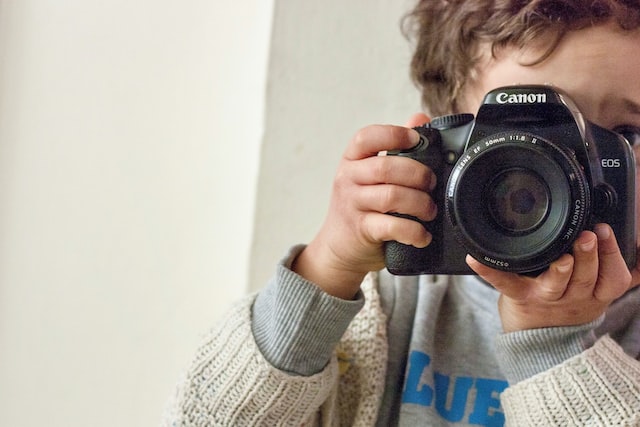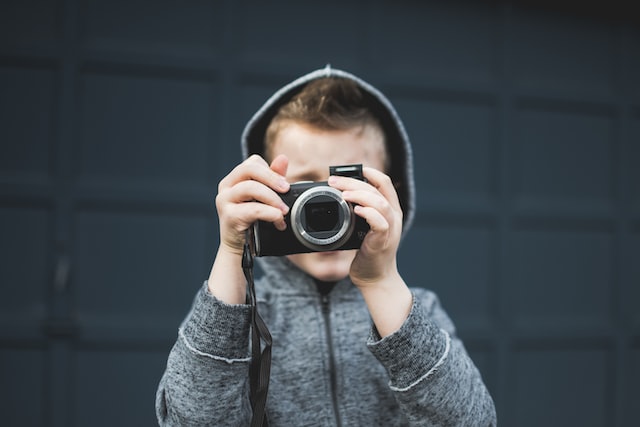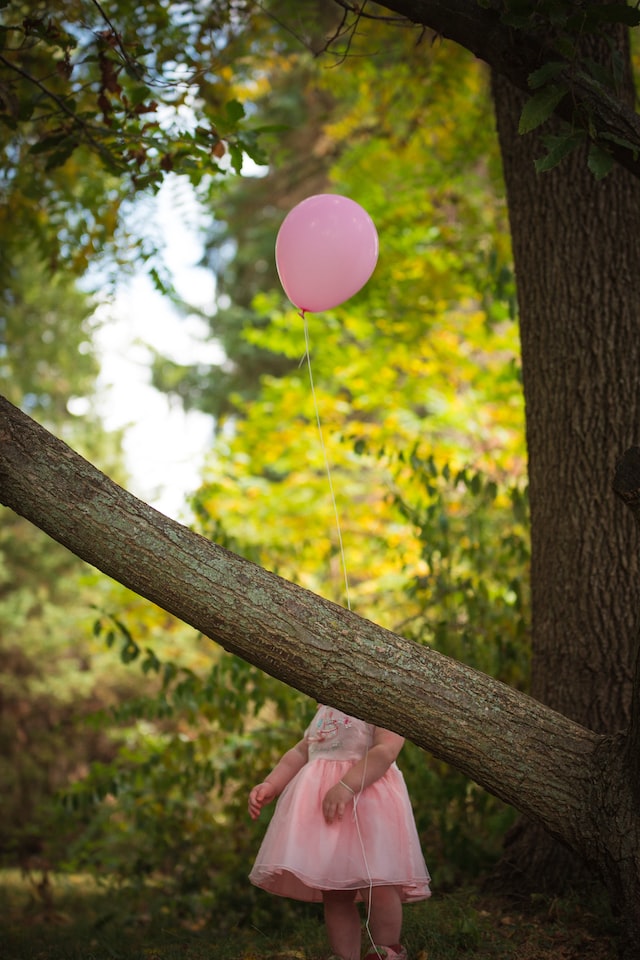Small babies being filmed hardly censored, or while taking a bath, covered with no more than a thin cloth. Three-year-olds shown on YouTube learning to go to the potty on their own for the first time. Six-year-olds having a hissy fit, the camera still running. And nine-year-old children happily skipping about in the garden, jumping into the pool dressed in bikinis, and subsequently offering an audience of millions a guided tour of their room. The number of channels like these, featuring children playing these parts or something similar, is growing. Mum, Dad and the camera are always there – whether it be at a child’s birthday party, while going to the doctor – or even while asleep. Self-styled “family bloggers” offer deeply intimate insights into the lives of their own children on the internet – and regularly exceed the limits of privacy and child labour protection in the process.

A PROFOUND INTRUSION INTO PERSONAL RIGHTS, PRIVACY AND DATA PROTECTION
If you spend time regularly on a range of different platforms, including YouTube, Instagram and TikTok, then you’ll know them: the vast numbers of parents who love to share images not only of their own daily lives but also those of their children with audiences of millions. It’s important to remember, however, that these are not private individuals, merely sharing photos and videos of their little ones with their own family and friends, but public figures who have built up their celebrity, usually via those same social networks, and often create a source of extra income with images of their children. Exactly how much money is involved is hard to say, because a vast array of different factors play a role: how frequently videos are uploaded, numbers of subscribers, how often ads are clicked and which ones, whether there are paid product placements, whether the people involved also sell merchandise items, and whether they also receive donations from fans all make a difference. According to the Standard, a YouTube channel with one million subscribers can earn between 100,000 and 200,000 euros a year. It’s a lucrative business, therefore, which can provide an entire family with a living.

Legally speaking, family bloggers are operating in something of a grey area. In general, every person has certain personal rights from birth onwards. These include the right to privacy, the right to anonymity, and the right to one’s own likeness. In other words, only the depicted children themselves can decide whether photos or videos of them should be allowed to be published or not. Parents are not allowed to give their agreement for their children regarding this. If you are a parent, however, and you ask your six-year-old daughter whether she would like to post a video of herself on the internet, you should also ask yourself whether the child is even able to understand what that means.
You should also consider the fact that children are in a naturally dependent relationship with their parents, and they can be influenced in their decision-making as a result. Once images are posted online, it is then practically impossible to delete them at a later date. The fact that these recordings, categorised by the parents as ‘harmless’, can be deeply embarrassing and degrading for the people depicted is not the only problem, however. They can also get into the wrong hands. A comprehensive survey carried out by political magazine Panorama und STRG_F in 2021 showed that paedophiles are using vast numbers of the seemingly innocent photos of children from social media, posting them on child pornography forums. Obscene comments are often added to the everyday photos; sometimes the perpetrators even provide links to the original social media profiles.
This is where another facet of the problem comes into play. Often it’s not just images and video of children that are shared with an audience of millions; family bloggers also disclose both their own personal data and that of their children. In many cases, viewers know both the first and family names of the children, their date of birth, where they live, their hobbies, and sometimes even the kindergarten or school they attend. This makes it relatively uncomplicated for sexual offenders or other violent criminals to work out where the children are.
HIDDEN CHILD LABOUR AS ENTERTAINMENT?
In principle, child labour is banned in Germany, Austria and Switzerland. In these countries, anyone aged sixteen or older or who has still to complete their statutory schooling is considered a ‘child‘. In individual cases, however, it is possible for children to be employed, subject to strict conditions. Examples of situations when it is permitted for children to work include during musical performances, theatre productions and other types of performance, and when making photographic, film, television or sound recordings. Children can only take part in performances of this kind if the following preconditions are met, however:
- The health of the child, as well as their physical, mental and moral development, must not be endangered.
- The child must not be put at any disadvantage in relation to their school attendance.
- There must be a written agreement from the legal guardians, a medical examination of the child must be performed, and a positive opinion from the Labour Inspectorate and from the Chamber of Commerce are required.
In addition to this, “child performers“ can only be employed between 8.00 in the morning and 11.00 in the evening, and not before their morning classes. The child’s journey to and from the place of work must not fall outside this timeframe either. The child must be given at least one two-hour break after their morning classes, and a one-hour break after afternoon classes. During school holidays, children must not be employed for more than one-third of their time. As well as meeting these conditions, organisers must be able to demonstrate a flawless reputation if permission is to be granted.
If it’s the child’s own parents standing behind the camera, however, there are no conditions whatsoever. And that’s exactly the problem: not only are the parents the legal guardians and employers of the children at the same time here; they are also blurring the limits between work and leisure time. While an under-age actor or performer has to travel to a television studio to play a fictitious role, with family bloggers the filming takes place within the child’s private sphere. In many cases, that means in the bath, on the potty or fast asleep in their cot. Another important aspect with family bloggers is that clearly we can’t understand exactly how long children are actually on camera, how often, and how much time is being spent filming.

In this context, media educator Roland Rosenstock describes the trend as a “highly-paid form of child labour” and “emotional abuse”, since pressure is being exerted on the children to a certain extent. They are given the feeling that they have to perform continuously, so sufficient attention can be generated on the internet. The lengths some family bloggers will actually prepared go to to maximise their clicks are shown by the example of blogger Jordan Cheyenne. In September 2021, the YouTuber uploaded a video, entitled “We are heartbroken”, in which she filmed her distraught son. The nine-year-old had found out a few minutes beforehand that his dog was seriously ill, and burst into tears at hearing the news. Before sharing the video on the internet, though, the blogger seems to have forgotten to delete a number of scenes. And it turned out mum had actually been giving her son a number of stage directions: “Pretend you’re crying”, she urges her child, and “Come here, come closer for the video”. Clearly upset, the boy replies: “No, Mummy, I really am crying”. That’s not enough for her, however: “No, I know, but do it like this”, she directs him, demonstrating a range of alternative poses to him over and over. When the boy continually tries to tell her how sad he really is, however, she doesn’t notice. We can only speculate about the long-term consequences that blogging – particularly to this extent – might have for the children involved. At this point, perhaps the only examples we have to work with are Hollywood’s ‘fallen‘ child stars who, unable to deal with their fame, became tragically dependent on drugs, alcohol or prescription medication in later life as a direct result.
AN APPEAL
You can’t forbid parents from posting photos and videos of their children, of course, as long as they aren’t breaching any guidelines. However, every one of us is responsible for protecting the children involved. If you want to show images of your child on the internet, be sure to comply with the following:

- Always ask your children for their permission before filming or taking a photo.
- If you are asked by your child to remove a photo or video from the internet, do as they request.
- Protect your child’s privacy: If you want to share posts of your child, particularly with a larger audience, be sure never to publish their full name, place of residence, school, kindergarten, or any other personal details such as mental or physical problems. When sharing recordings with a larger audience, you should also consider photographing your child in such a way that their face is not recognisable, or censoring the image of their face before posting.
- Try seeing the situation from your child’s point of view: Which photos/videos of yourself would be painfully embarrassing for you to see? Would you like to see yourself shown on the internet naked, or sitting on the toilet yourself?
- You should only film or photograph your child if they also want this, and only ever in selected rooms: the child’s room should remain a refuge for them, and not become a film set.
- Consider alternative approaches: it’s better to share your photos in closed groups, on platforms such as WhatsApp, than on platforms such as Facebook, Instagram and the like.
Translation by Tim Martinz-Lywood, European Exchange Ltd.
www.european-exchange.co.uk
#Kinderarbeit #Familienblogger #Familienblogging #Ausbeutung #Internet #Influencer #SaferInternet #Jugendschutz #AgainstHumanTrafficking #GegenMenschenhandel #EndExploitation #EndTrafficking #HopeForTheFuture #Österreich
